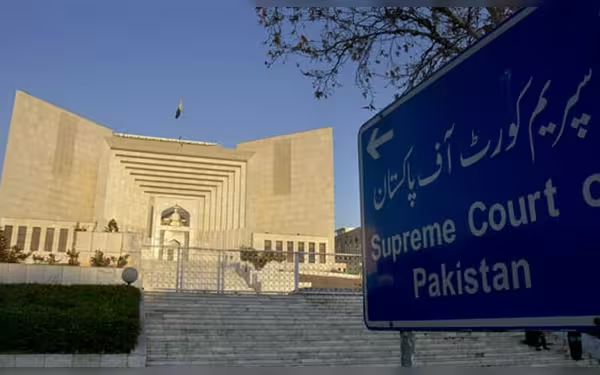Saturday, November 16, 2024 05:45 PM
Supreme Court Ordinance Revives Master of Roster Authority
- CJP Qazi Faez Isa gains extensive powers.
- Justice Aminuddin Khan replaces Justice Munib Akhtar.
- SCBA condemns ordinance as undermining judicial independence.
 Image Credits: dawn
Image Credits: dawnThe Supreme Court Ordinance 2024 revives the master of roster concept, granting CJP Qazi Faez Isa significant powers amid concerns from the legal community.
In a significant development within Pakistan's judicial landscape, the recent promulgation of the Supreme Court (Practice and Procedure) Amendment Ordinance 2024 has reignited the debate surrounding the concept of the "master of the roster." This term, introduced by Justice Munib Akhtar in a ruling last year, refers to the authority of the Chief Justice of Pakistan (CJP) to determine the composition of benches that hear cases. The ordinance has granted extensive powers to the current CJP, Qazi Faez Isa, allowing him to reshape the three-judge committee that handles critical cases under Article 184(3) of the Constitution.
The backdrop to this change is rooted in the previous structure, where the three-judge body was composed of the three senior-most judges: CJP Isa, Justice Syed Mansoor Ali Shah, and Justice Munib Akhtar. However, following the issuance of the ordinance, Justice Aminuddin Khan has replaced Justice Munib Akhtar in the committee. This shift has raised eyebrows among legal experts, who argue that it effectively restores the CJP's power to dictate the bench's composition, a role that had been a point of contention in recent judicial proceedings.
Legal observers have noted that the previous committee meetings often left CJP Isa in a minority position, which may have prompted this recent restructuring. The revival of the "master of the roster" concept is seen as a move to consolidate power within the judiciary, particularly in light of ongoing discussions about the future of the Supreme Court's structure and its role in upholding fundamental rights.
As the ordinance is set to last for only 120 days unless renewed, its future remains uncertain. Legal experts suggest that the federal government is likely to push through the 26th Constitutional Amendment, which aims to establish a nine-judge Federal Constitutional Court. This court would handle cases related to fundamental rights and disputes between provincial governments, potentially reducing the Supreme Court's current workload.
In response to the ordinance, the Supreme Court Bar Association (SCBA) has expressed deep concern, labeling the move as a "clear defiance" of the legal fraternity's long-standing struggle for judicial independence. The SCBA's statement emphasized that the original 2023 law was crucial in enhancing access to justice and protecting fundamental rights, while the new amendments could undermine these principles.
Furthermore, the Pakistan Bar Council has criticized the government's lack of consultation with legal stakeholders before enacting the ordinance. This has raised questions about the government's commitment to engaging with the legal community, which has historically played a vital role in advocating for constitutional supremacy and judicial independence.
As the situation unfolds, it is essential for all stakeholders, including the government, judiciary, and legal community, to engage in constructive dialogue. The sanctity of the Constitution and the independence of the judiciary are paramount for ensuring justice and upholding the rights of the people of Pakistan. The coming weeks will be crucial in determining the trajectory of Pakistan's judicial system and the balance of power within its highest court.













